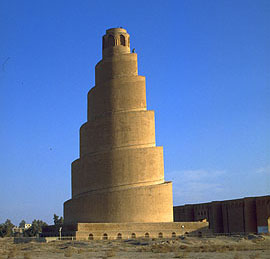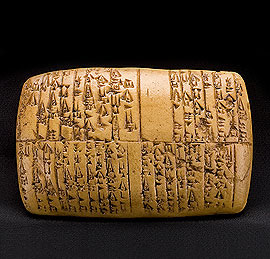In Ancient Mesopotamia
Organized farming fed the first cities 4,000 years ago.
The Tigris and Euphrates rivers made it possible to grow wheat on the arid Mesopotamian plains, but the dry climate eventually defeated human engineering. Irrigation brought water to fields faster than it could drain out. As salt-rich groundwater rose and surface water evaporated, mineral salts built up in the soils. Farmers switched to more salt-tolerant grains like barley, but the harder they farmed, the less they harvested. After about 2,000 years, the once-fertile land of southern Mesopotamia was barren.


